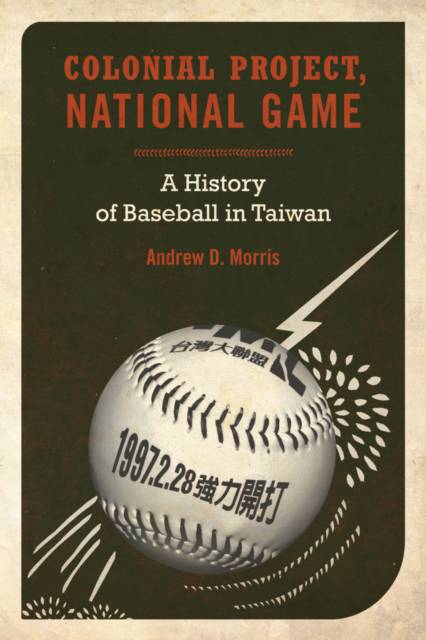
Bedankt voor het vertrouwen het afgelopen jaar! Om jou te bedanken bieden we GRATIS verzending (in België) aan op alles gedurende de hele maand januari.
- Afhalen na 1 uur in een winkel met voorraad
- In januari gratis thuislevering in België
- Ruim aanbod met 7 miljoen producten
Bedankt voor het vertrouwen het afgelopen jaar! Om jou te bedanken bieden we GRATIS verzending (in België) aan op alles gedurende de hele maand januari.
- Afhalen na 1 uur in een winkel met voorraad
- In januari gratis thuislevering in België
- Ruim aanbod met 7 miljoen producten
Zoeken
€ 144,45
+ 288 punten
Omschrijving
In this engrossing cultural history of baseball in Taiwan, Andrew D. Morris traces the game's social, ethnic, political, and cultural significance since its introduction on the island more than one hundred years ago. Introduced by the Japanese colonial government at the turn of the century, baseball was expected to "civilize" and modernize Taiwan's Han Chinese and Austronesian Aborigine populations. After World War II, the game was tolerated as a remnant of Japanese culture and then strategically employed by the ruling Chinese Nationalist Party (KMT) Even as it was also enthroned by Taiwanese politicians, cultural producers, and citizens as their national game. In considering baseball's cultural and historical implications, Morris deftly addresses a number of societal themes crucial to understanding modern Taiwan, the question of Chinese "reunification," and East Asia as a whole.
Specificaties
Betrokkenen
- Auteur(s):
- Uitgeverij:
Inhoud
- Aantal bladzijden:
- 290
- Taal:
- Engels
- Reeks:
- Reeksnummer:
- nr. 6
Eigenschappen
- Productcode (EAN):
- 9780520262799
- Verschijningsdatum:
- 24/11/2010
- Uitvoering:
- Hardcover
- Formaat:
- Genaaid
- Afmetingen:
- 155 mm x 229 mm
- Gewicht:
- 521 g

Alleen bij Standaard Boekhandel
+ 288 punten op je klantenkaart van Standaard Boekhandel
Beoordelingen
We publiceren alleen reviews die voldoen aan de voorwaarden voor reviews. Bekijk onze voorwaarden voor reviews.









